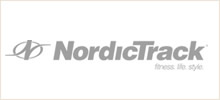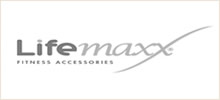
How Much Cardio Equipment a Health Club Should Have
The focus on health and wellness is at an all-time high and fitness has become a $27.6 billion

Held every summer since 2007, the CrossFit Games pit the “Fittest on Earth” against one another in a variety of challenges. Competitors are encouraged to be “ready for anything” and previous challenges have included events like swimming, obstacle courses, and pegboard climbing.
Founded back in 2000, CrossFit’s Founder and CEO Greg Glassman opened his original gym in Santa Cruz, California. It featured their unique exercise and fitness philosophy that consisted of a strength and conditioning program with a mix of aerobic exercises, calisthenics (body weight exercises) and Olympic weightlifting.
“As one of the biggest trends in fitness over the past 20 years, CrossFit has changed the fitness landscape,” explained Jake Petersen, Director of Products for Strength & High Intensity at Core Health & Fitness. “ Greg Glassman ignored traditional fitness practices and blazed a path to push participants to levels previously unimaginable by combining known exercises in unique, measurable ways. CrossFit has blurred the lines between running, rowing, swimming, powerlifting, weightlifting and gymnastics. This is attracting more attention to each of these specific sports and creates a boundary crossing enthusiasm that traditionally has not been the case in fitness. One of my favorite things about CrossFit is the flexibility and diversity that the programming drives. Young or old, strong or not so strong, gymnastics savvy or non-flexy (like me); participants are working side by side doing the same workout and cheering each other on.”
CrossFit facilities also broke the norm on how people view the gym. Referred to as a “Box”, these facilities often closely resemble a garage or warehouse gym with a rugged, practical sensibility, rather than the flash of mega gyms and boutiques. Essential equipment you would find in a Box include things like kettlebells, Olympic bars and plates, pull up bars, air bikes and rowers, rather than machines they see as expensive and having limited functionality. The tools used in a CrossFit regimen are ones that allow them to train each of the 10 physical skills used to define fitness and imitate functional movements that translate to real life scenarios. The 10-recognized general physical skills include cardiovascular/respiratory, endurance, stamina, strength, flexibility, power, speed, coordination, agility, balance and accuracy.
The regimen also focuses heavily on data, competition, and clearly defined rules for performance. White boards, chalk or poker chips are often used to count rounds and record results. Keeping accurate scores and records are an important aspect of CrossFit. They record both relative and absolute metrics at every workout which are not only a powerful motivator, but important for competition and tracking participants progress.
We mentioned in a previous post the ability for competition to amplify member engagement, but few gyms have embodied this like CrossFit. CrossFit adopted its first affiliate gym in 2005 called CrossFit North in Seattle, Washington. Since then, with the help of a Reebok sponsorship, they have managed to expand to more than 13,000 affiliate gyms worldwide, a passionate global community and a yearly televised competition for athletes from all around the world.
CrossFit’s success speaks for itself, and if you look, it is easy to see how many new trends in fitness programming and equipment designs have adapted from the CrossFit philosophy and definition of what it means to be fit.

The focus on health and wellness is at an all-time high and fitness has become a $27.6 billion

Elliptical trainers make up the second largest cardio equipment category, and are a staple for fitness facilities. The low impact nature

Jeffrey Scott is an International Fitness Presenter, The Lead Master Trainer for Schwinn Indoor Cycling and the Senior












When you set out to build something, the finished product is only as strong as its foundation. So when Elatis Fitness Equipment brought together fitness brands from all corners of the industry, we settled for nothing but the best.